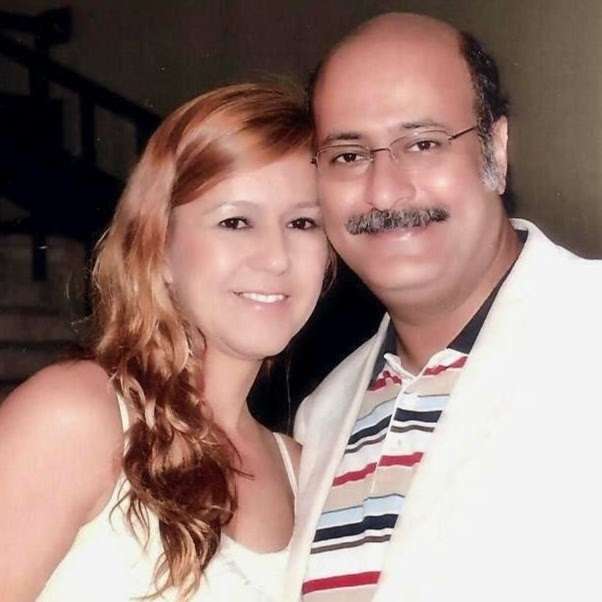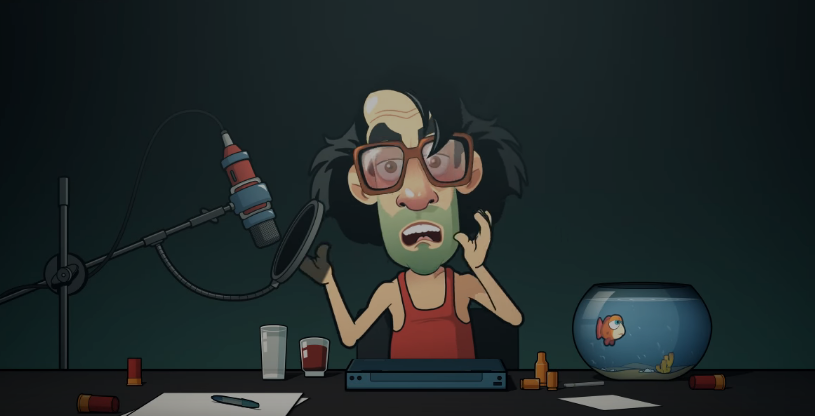by Sherif Awad
Social media, like Facebook, Twitter and YouTube have become strong tools not only in advertising and promotion but also in reflecting the turmoil of a nation and maybe in biasing its public opinion. Everybody knows that Facebook and Twitter played major roles in the Arab Spring revolutions especially in Egypt. We Are All Khaled Said, a Facebook page created by Google’s Middle East representative Wael Ghonim was the trigger effect behind the January 25 revolution. Amateurish videos recorded by cell phone and uploaded on YouTube documented the daily struggle of the Egyptian revolutionists until Mubarak says farewell.
One of the most noticed videos, done through professional tools, was the channel called Kharabeesh Cartoons that made fun of daily sociopolitical turmoil and political figures in a high sarcastic manner using the bittersweet Egyptian sense of humor in fusion with Oriental and Western cultural heritage. No one was safe from Kharabeesh’s jokes. Egyptian journalist Mostapha Bakry who was portrayed as drummer, reflecting the Egyptian slang of a man who changes bias and can sing and a dance for anybody in a nick of time. During the presidential election, one the candidates, the Salafi Salah Abou-Ismail was portrayed like a spirit haunting a young man anywhere he goes. The two final candidates Morsy (Now the current Egyptian president) was portrayed like a character in the Street Fighter Video Game playing aganist Shafeek who lost the presidential race. Kharabeesh (which means scratches in Arabic Language) portrayed many figures in entertainment figure like actor Ghassan Mattar who always plays a villainous Mafioso and many others.
I went to track down the creator of the cartoons Ashraf Hamdy who mysteriously answered my questions by email because he was busy uploading a daily competition on YouTube during the Muslim month of Ramadan (that ended last week).
– How did Kharabeesh Company start? And why this name was chosen?
– Kharabeesh is Arab company that was founded in 2008 in Amman then Tunisia in 2010 and finally in Egypt and the Arab Gulf in 2011. It is a production and distribution company aiming to create an Arab entertainment industry on the Internet coming from our reality and our cultural heritage while presenting offer bold and unprecedented ideas in reflecting the desires of Arab youth in change and development.
– Kharabeesh (Scratches) carries meanings of freedom, spontaneity and love of experimentation, so we chose these synonyms to reflect our practice. Our films are continuous experiments in which we put new ideas and topics that no one could tackle before with great freedom and diversity.
– Besides the sociopolitical cartoons, what other projects you have?
There are different networks in the company, each with a range of programs, presentations and short films. Namely:
• Kharabeesh Cartoons : which is the collection of Arab short films and series Arab cartoon shorts, created by professional and motivated staff of artists, the broadcasted on the Internet and mobile phones.
• Dawsha Music( Loud Music): away from the commercial world of art and music, Kharabeesh cooperate with a number of creative young musicians who go beyond traditional music and sentimental lyrics to present contemporary music and new content. Their songs are broadcasted on their channels, which are intertwined with the main Kharabeesh network.
• Tahshish (Drugs): A channel whose comic content is inspired by modern Arab culture and Arab youth.
• Rosoom (Drawings): It is most recent Kharabeesh channel that aims to publish the work of a number of artists through YouTube browsing , with an aims to gather the best creative works altogether.
• Kharabeesh Street: A gathering place for talented and and creative young people in addition to media figures.
– Who is Ashraf Hamdy? What were you doing before Kharabeesh?
I was born in Giza, Egypt 1982, and I have a Bachelor of Dental Surgery at Cairo University in 2005.
Since my first year of college, I began working as a cartoonist in many newspapers, magazines and some TV shows such as Sabah El-Kheir, Ahram, Rose Al-Youssef, Al-Dostor, Al-Kahera Al-Youm on Orbit TV and Caricature published by the Egyptian Cartoon Group were I also became member. I also had work posted on websites like Masrawy.com and Mashy.com.
I have Participated in many local and international caricature exhibitions and competitions and won several awards including the prize for the Best Caricature in South Korea in 2006.
– Are there any major projects outside of the Internet environment like a feature animation film or series of standard 26 minutes, for example?
No, we are committed to the entertainment industry on the Internet
– Did you face any censorship, criticism or even threats?
No!
– Tell us about some of the techniques and stages in order to create a short cartoon of yours. What kind of software you use?
There are many stages but first and most important is the brainstorming with the group of artists for the preparation and setup of ideas and programs. Then we start in the production: writing the texts based on the ideas, creating the characters and thus recording the vocals of the characters. We go on creating storyboards and drawing with synchronizing the vocals and sound effects. Finally, we upload everything on our website and on YouTube channel. Regarding software, we use, Adobe Illustrator, Flash, Photoshop, Aftereffects, Media Encoder , Sony Vegas and others.
-Some of the work (such as a mockery of candidate Hazem Abu Ismail and tagline of his campaign “we will live with dignity”, missed the fast pacing and the soundtrack. Your comments…
About the rhythm of Abou Ismail cartoon, it was very complicated film to make because there was a lot of location. The story was about a young man who finds posters of Abou Ismail everywhere, on the Internet, in his kitchen, in his fridge and across the street, which drives him to go the mental psychiatrist only to be shocked that he is Abou Ismail too. So he jumps from the window. I spent days in drawing the very large number of backgrounds that appears for a few seconds on the screen. Because I do I most of the tasks all by myself like designing the characters and backgrounds, installation, editing and vocals, it is difficult to come up with perfect work near the end. However, we are in continuous learning process every day. The great thing about Kharabeesh is the final film is out immediately online in contrast to the work of any other company that take a year or more after the end of its completion. So feedback is fast, and ameliorating our work is faster, learning from our own mistakes.
As for the soundtracks, we have no one who can author music in our Cairo Office until now because music composer are rather expensive. So sometimes, I take the liberty of implementing it (and I’m not a professional musician) or adapting tracks from other works without conflicting with intellectual copyright.
In some works such as Abou Ismail,” I did not use music but except in the clinic where I adapted some classical music fitting the atmosphere of psychotherapy session. Some other times, silence is more effective. Music was more relevant is other works about SCAF, Omar Soliman or Super Morsy when I used the famous Superman theme (by John Williams).

